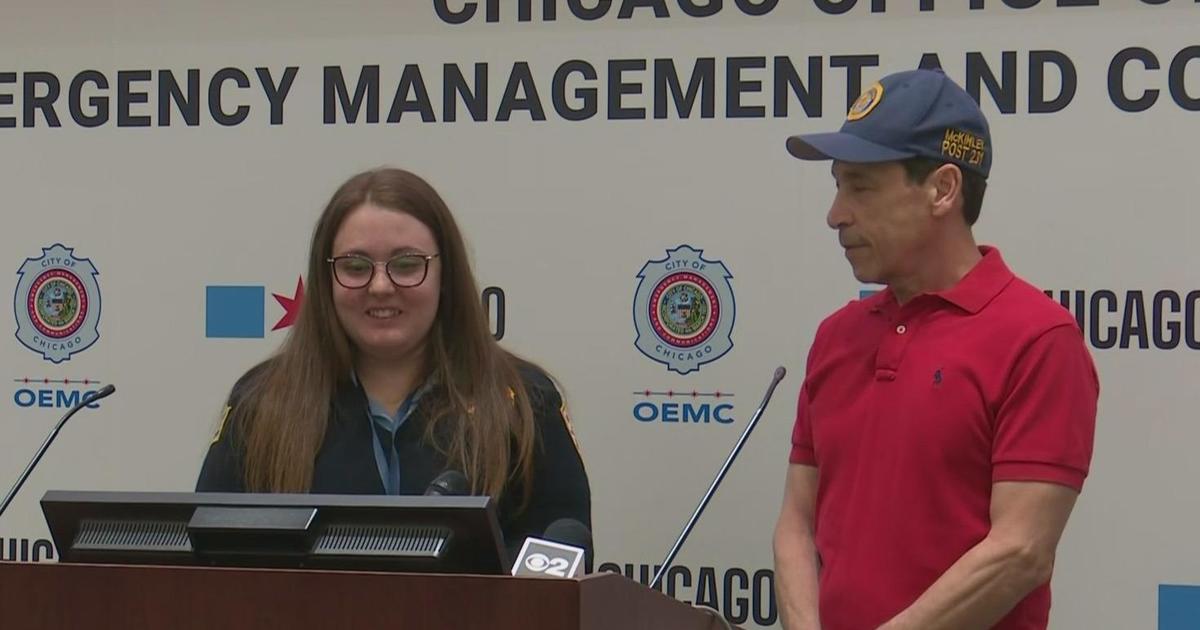Isolated During COVID-19: Navigating Loneliness During The Pandemic
By Jake Beckman, Associate Producer
CHICAGO (CBS)– For those who are stuck at home with loved ones and roommates, managing the pandemic can feel draining or overwhelming. But what about people who live alone? Dr. Kortney Peagram talks about navigating loneliness during COVID-19.
Without any face-to-face communication at home, single dwellers face unique challenges. Who can you sit down and talk with? Who can you give a hug to make you feel all warm and fuzzy inside?
Dr. Kortney Peagram, PhD, is the owner of Bulldog Solution and Peagram Consulting. She helps schools and businesses with mental health and safety. CBS 2 spoke with her about living alone during the COVID-19 pandemic.
This interview has been edited and condensed for clarify.
Jake Beckman: For people who live alone, how can sudden isolation impact their mental health?
Dr. Kortney Peagram: It depends on the person – everyone is individual. It goes by person and day-by-day.
It's really important to focus on what are the strengths of the person. What are some of the things that they're really good at and that they love so they can find ways to redirect their attention in those moments of panic or feeling lonely.
We're all going to feel lonely at some point – we're isolated.
When we get lonely, we tend to disconnect from others; We stop reaching out, we feel isolated, and we tend to have behaviors that numb those feelings, like binge watching TV, maybe scrolling through social media without interacting with anyone.
Then we get into that place in judgment - everyone else seems like they're loving this pandemic; they're having fun, they're having dance parties, and here I am alone.
No one's reaching out to me. So that starts to sink in.
JB: We hear the terms "introvert" and "extrovert" often. How do introverts and extroverts handle the pandemic differently, and how can they stay mentally fit?
Dr. Peagram: When it comes to introversion and extroversion, it's a spectrum. So you can be anywhere on that spectrum.
Depending on what your role is and who you are as a person, you vary.
There are also "social introverts" who are great presenters.
They can be in the public eye, but they really like to take that time for themselves and recharge their battery.
Extroverts are people who get their energy from others and groups of people, they process things verbally, whereas introverted people take time to process, they don't respond right away, but they also like to be with people.
They just like smaller groups – more intimate settings.
So it hits both sides of the spectrum the same way, but at different angles.
JB: If someone is living without anyone else, are there and precautions they should take to avoid feeling lonely?
Dr. Peagram: If you're aware that you suffer from depression, anxiety, or any mental health issue, the first thing is going to see a therapist.
Now therapy is offered via telehealth – a zoom call, over the phone – and there are a ton of practices that are currently doing it and they are accepting new patients.
I highly recommend if you're suffering, seek help. Now it's easier more than ever.
I can sit in the comfort of my own home and talk to someone without physically having to go out.
You don't even have to see any faces. It can be over the phone.
So I think telehealth is a really important component.
Also, when it comes to being alone, know what makes you happy.
Maybe make a list of things that bring you joy.
From FaceTime-ing a friend, to, especially younger people, they have weekly challenges with their friends: wine tasting, beer tasting, book clubs. They're doing it through Zoom or FaceTime to create that interaction.
Finding the things that interest you and finding outlets using technology to be able to do that, so that you eliminate feeling alone.
For yourself, when you feel isolated, do things that are super simple and are baby steps to keep you motivated.
If you're feeling really sad or you're alone and sleeping a lot, just get out of bed and make your bed, and then celebrate that.
Taking a shower or changing your clothes can just change a segment of your day where you're feeling more accomplished.
When we feel accomplished and we're attaining something, it takes the aspect of feeling lonely.
Our minds are distracted.
When it comes to our friends and loved ones, reaching out, sending love notes, text messages, emails…
There are even apps where you don't need to write the note physically, you can fill it in online.
I would make a list of your friends that you care the most about and are challenged with these times, and make sure that you're reaching out.
You know what I put in some of my texts? I say: you don't have to respond, but just let me know that you're okay, because I can't see you face to face right now.
JB: You mentioned a lot of things that people should be doing right now. Are there any pitfalls that people should avoid falling into?
Dr. Peagram: It's funny because you look at social media and people are binge watching TV, binge eating, and it's wine o'clock all the time.
Those are all fun and using humor, but if one of those things really triggers you, you can avoid it by distracting yourself with other things.
Make a list of things you've always wanted to do, from cleaning the inside of your car to organizing your closet, creating a vision board.
People are even adopting pets during this time.
A pet is a great solution because they need your care.
We should avoid those traps that we get into.
I like to set structure. For example, if you're going to watch TV, do it for two or three hours.
Don't do it for a full day.
After those two or three hours, give yourself a phone call, set a time to meet a friend virtually, do something that you have to physically stop.
If you don't suffer from alcoholism, but you're more prone to enjoying alcohol, limiting your consumption is just not having it in the house.
Having limited accessibility to things that you might want to binge on can be helpful.
For social media, I set timers.
If I'm going to spend time on social media, I'll set a timer, and when the timer goes off, I need to shut it down.
Sometimes we don't even realize we are scrolling, so timers can be really helpful.
Then celebrate!
[More from CBS 2: Loneliness Of Social Distancing During COVID-19 Crisis Might Trigger Craving Similar To Hunger]
JB: What are some silver linings that people can take away from staying in isolation?
Dr. Peagram: If you are alone, by yourself, living alone, this is the best time to get to know who you are.
What do you like? Who are you as a person?
You can really spend some time learning about yourself.
Self development is key.
If you're a parent, you get unlimited time with your children.
That can be really helpful with bonding and understanding their behaviors and to get to know each other.
It's the same thing with a roommate or spouse.
You're spending quality time together, and you'll never get this again.
Also understand that we have a lot of privileges in front of us that 10, 15, or 20 years ago, we didn't.
Social media, Zoom, FaceTime, all of these online platforms we have, we get to connect.
I'm so excited to see your face, because between you, my daughter and my husband, you're the only face I'll probably see today.
This is fun – it brings joy – small sparks. It's all about the small things and focusing on finding gratitude.
I'm grateful I have delivery, that I have food in my fridge, that people are out there working, and that I can stay home.
It's hard because people are like my business is crashing or I don't have a job.
But we're all in this together, and it's not like we're going to let anyone fall through the cracks.
We're trying to rebuild ourselves, together.



